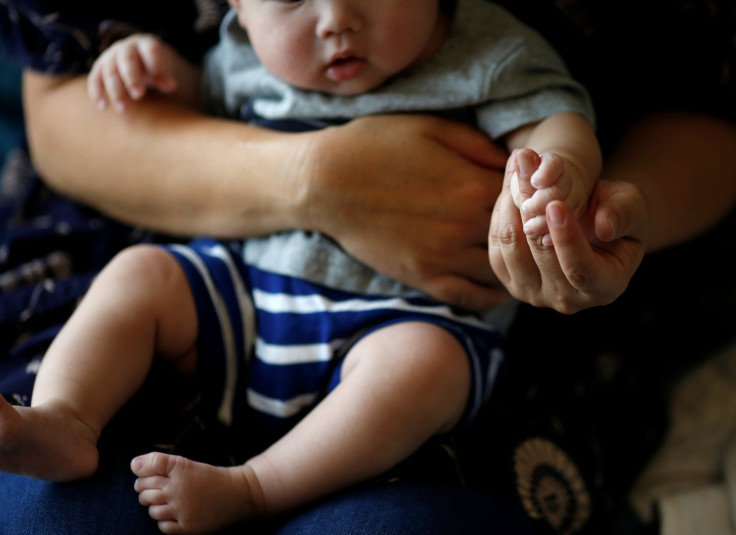The Five Best Countries To Give Birth: Where Mothers And Children Are Healthy And Safe

We don't have a say in where we're born, and that lack of choice could make a huge difference in both our health and lifetime opportunities. Recent research has suggested that some places in the world may be better than others for both mother and child when it comes to giving birth.
According to a report published last year and produced by Save The Children, an international non-governmental organization that promotes children's rights in developing nations, the five countries that have the lowest maternal mortality rates are Belarus, Poland, Austria, Israel, and Italy. For example, a woman in Belarus has a one in 45,200 chance of dying after giving birth, compared to a one in 6,900 chance in the United Kingdom. The United States is behind the UK in 33rd place. The report found that women in the U.S. have a one in 1,800 lifetime risk of maternal death – the worst performance of any developed country in the world, The Guardian reported.
Some of the reasons for such high maternal mortality rates in industrialized countries include obesity, IVF, multiple pregnancies, increased maternal age, and poor access to healthcare. In addition, the amount of time a woman stays in the hospital following childbirth is also a factor in her overall health. Too short a stay does not provide enough time to educate new mothers about how to care for their newborns, which can lead to breastfeeding problems, depression, or dissatisfaction. On the other hand, lingering too long on the hospital bed increases the risk of some infections, and negatively impacts sleep, family bonding, and sibling rivalry. A recent study found that high-income countries tend toward shorter hospital stays, with hospital stays in industrialized countries decreasing since the 1970s.
The report found Egypt and Ukraine to be on two very opposing sides of this problem. For example, the average length of stay for a woman giving birth to a single child via vaginal delivery ranged from 0.5 days in Egypt to 6.2 days in Ukraine, the team estimated. For C-section deliveries, the average stay ranged from 2.5 days in Egypt to 9.3 days in Ukraine. For comparison, the average length of stay for women in America who have just delivered naturally is two days.
However, if you are less interested in maternal and infant health, and more interested in opportunities available to the child later in life based on their birthplace, North America is the place to be. According to Nomad Capitalist, the United States and Canada are the only “developed countries” that offer unconditional citizenship to children born in the territory. This means the U.S. and Canada are the only places that offer children born there citizenship based on nothing more than where their birth certificate was signed.
Ultimately, the Save The Children report found that economic factors made the biggest different in childbirth health regardless of where you are born.
“If the world’s going to complete the task of ending preventable child and maternal deaths, we have to find better ways of getting healthcare to urban populations, regardless of income,” said Save the Children International’s chief executive, Jasmine Whitbread, The Guardian reported. “For babies born in many of the world’s fast-growing cities, it’s survival of the richest.”
Read More:
Why Did The Maternal Mortality Rate Double In Texas?: Read Here
Dying In Childbirth 2016: Maternal Death Rate In US Has Worsened Since 2000, Says New Study: Read Here



























